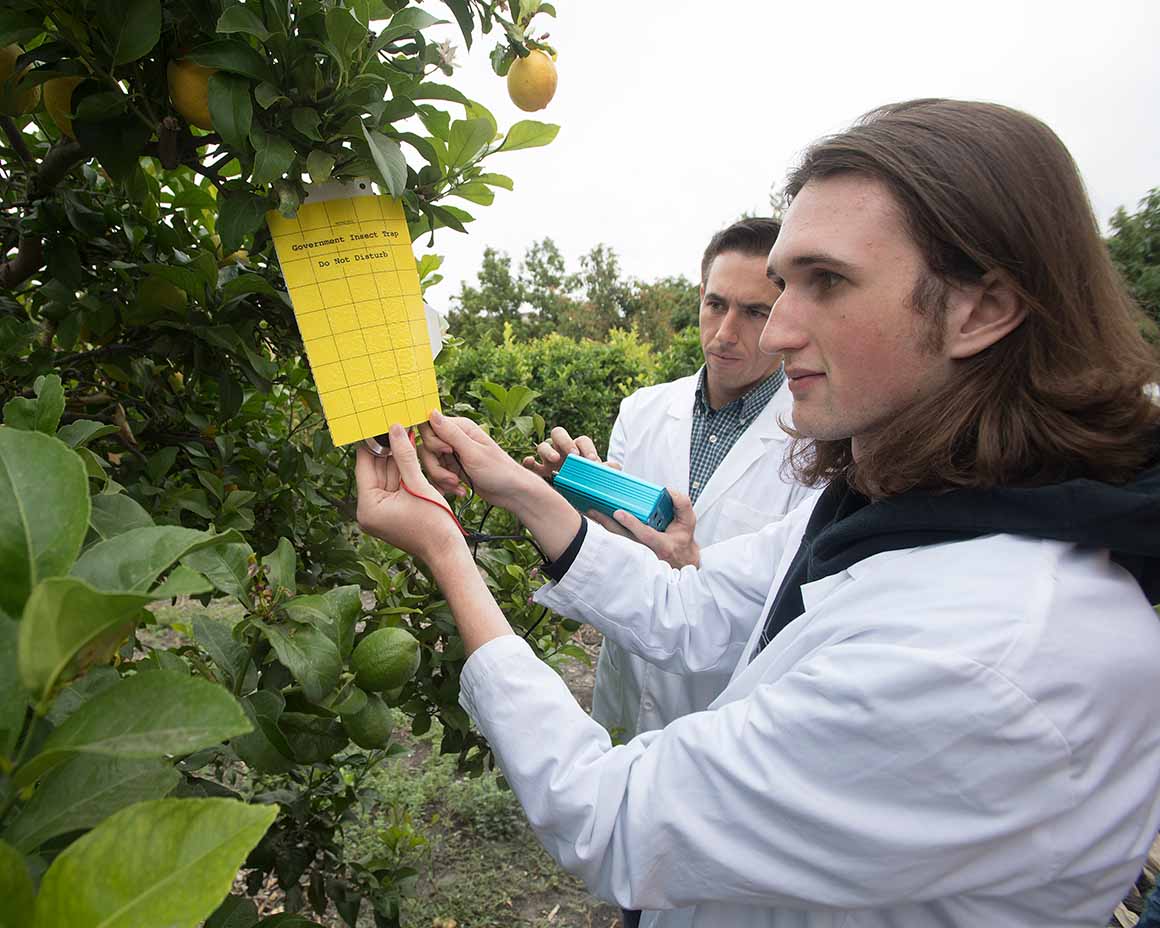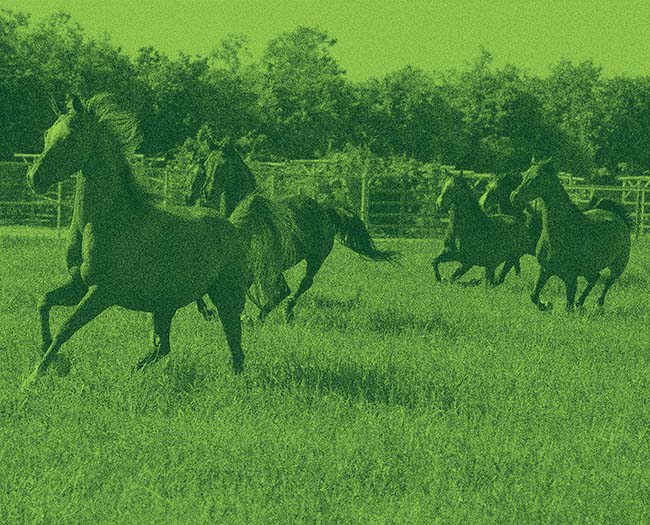Master of Science Degree in Agriculture (Agricultural Science)
About the Program

The master's degree in agriculture, agricultural science subplan, is designed to increase your skills in research methodology and design, statistical analysis, and utilization of technology.
It will equip you to address challenges that affect agriculture in rural and urban areas and serve as an effective advocate for the agricultural issues you are most passionate about.
This degree has bolstered the careers of individuals employed in public schools, community colleges, universities, cooperative extension, and other agricultural career fields.
In addition to expanding your research skills, this program will provide you with mentoring, training, and resources that promote lifelong learning and critical thinking skills needed to become a leader in your field.
Admission to the Program
Applicants should have a bachelor’s degree in agriculture and complete the requirements for a Single Subject and Specialist Credential in Agriculture prior to advancing to candidacy and taking the comprehensive exam.
If you don’t have a bachelor’s degree in agriculture, you must take undergraduate-level courses in the Huntley College of Agriculture before the program will admit you. You also must have a cumulative undergraduate grade point average of 2.75 overall, or 2.75 in the final 90 units of coursework.
In addition, the agricultural education program coordinator must receive three letters of recommendation from individuals familiar with your academic qualifications and potential as a graduate student.
International students seeking admission into the program must achieve a score of 550 on the TOEFL.
The program’s Graduate Admissions Committee can conditionally admit applicants who do not meet these standards. However, these students must comply with the requirements of admission within three quarters.
Program Description
Once you are admitted, you will work with an appointed advisory committee to develop a program based on your interests and preparation by the end of the second quarter
Your approved program of study will include required basic core courses, a selection of additional courses in a specialization, electives, independent study, and a thesis or comprehensive examination.
Admission to the program does not guarantee you admission to candidacy for the degree.
To advance to candidacy, a student must:
- complete at least 12 units of graduate coursework at Cal Poly Pomona with a GPA of 3.0 or better
- gain the graduate coordinator's recommendation. Until then, students are ineligible to register for the thesis (AGS 696) or comprehensive examination (AGS 697).
Additional Requirements
- Your degree program must include at least 45 semester units, of which at least 24 units shall be in 500- or 600-level courses. Additional coursework may be required to eliminate subject-matter deficiencies. At least 24 units must be related to agriculture.
- You must maintain a grade point average of 3.0 (B) or better in all upper division undergraduate and all graduate courses. No course with a grade lower than "C" (2.0) may apply toward the fulfillment of degree requirements.
- Transfer restrictions:
- You cannot transfer more than 13 quarter units of acceptable graduate credit from another graduate institution.
- Likewise, you cannot use more than 13 units taken through the College of Professional & Global Education (CPGE) on a contract.
- An undergraduate student may petition for a maximum of 13 units of acceptable graduate credit
- You may include up to 13 transfer, CPGE, and/or units petitioned for graduate credit on a master's contract.
- The stipulated time limit of seven years applies to all of the above.
- Graduate students enrolled in the Single Subject Credential program who have completed their undergraduate degree may complete more than 13 units of the master's program prior to admission under the following conditions:
- You must meet the requirements for unconditional admission into the master's program.
- You must obtain prior permission from the department graduate coordinator.
- You must develop a program based on the curriculum outlined in the Graduate Studies section of the catalog, in consultation with the major professor and the department graduate coordinator and have it approved by the graduate studies analyst.
- Advancement to candidacy is required.
- Graduate students completing a thesis must submit two final copies for binding in accordance with university regulations AND successfully complete a final oral examination covering the thesis and the candidate's area of specialization.
- You must be enrolled at Cal Poly Pomona during the semester of graduation.
You can select a concentration or include an internship in an industry sector of your choice. Most students in this program must do a thesis, but those on an agricultural education track can take a comprehensive exam instead.



